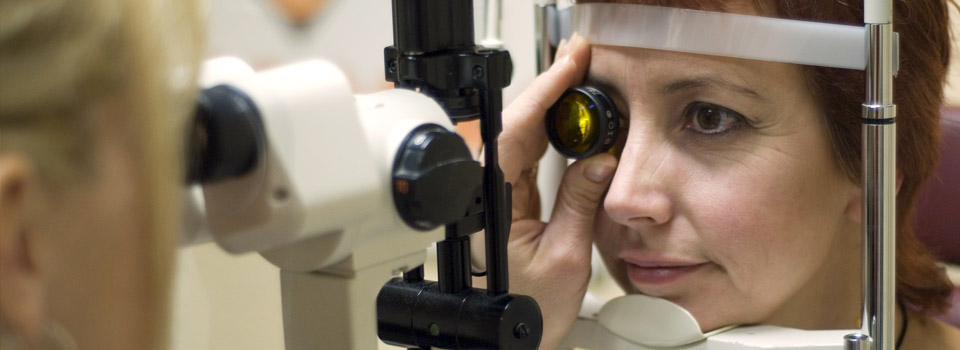Our Optometrist in Tacoma, explains About The Causes of Night Blindness
Our eye doctor can help diagnose, manage and treat your night blindness so that you can enjoy being out at night again.
Here are 4 things you should know about night blindness:
The inability to see well at night can be the result of a condition such as:
- Vitamin A Deficiency Vitamin A helps keep your cornea, the layer at the front of your eye, clear; it's also an important component of rhodopsin, a protein that enables you to see in low light conditions. Although uncommon in North America, deficiency of this vitamin can induce night blindness.
- Cataracts
A buildup of protein clouds the eye’s lens, leading to impaired vision, especially at night and in poor lighting conditions. - Diabetic retinopathy
Damage to the eyes’ blood vessels and nerves can result in vision loss, including difficulty seeing at night. - Glaucoma
This group of eye diseases is associated with pressure build-up in the eye that damages the optic nerve. Both Glaucoma and the medications used to treat it can cause night blindness. - Myopia
Also called nearsightedness, Myopia makes distant objects appear blurry, and patients with it describe a starburst effect around lights at night. - Keratoconus
An irregularly shaped cornea causes blurred vision and may involve sensitivity to light and glare which tend to be worse at night. - Retinitis Pigmentosa (RP)
A progressive genetic eye disease which can be associated with other diseases, RP leads to night blindness and peripheral vision loss. - Usher Syndrome
This genetic condition causes both hearing loss and vision loss, including night blindness and RP, mentioned above.
Symptoms of Nyctalopia
Since night blindness is a symptom of some serious vision problems, it’s important to get your eyes checked regularly to ensure that everything is in good working order. Contact your eye doctor as soon as possible if you notice that you don’t see as well in dim light as you used to, such as when driving at night or when adjusting from being outdoors in the sunshine to being indoors.
Symptoms of Night Blindness Include:
- Reduced contrast sensitivity
- Difficulty seeing people outdoors at night
- Difficulty seeing in places with dim lighting, like a movie theater
- Trouble adapting to the dark while driving
- Excessive squinting at night
- Trouble adjusting from bright areas to darker ones
Treatments for Night Blindness
Your eye doctor will want to diagnose the cause of your night blindness in order to treat it. For example, in the rare case of vitamin A deficiency, it can be treated with vitamin supplements and vitamin-A rich foods; Myopia can be corrected with eyeglasses or contact lenses. Other conditions may require medications or surgery.
If night blindness is caused by a birth defect, Usher syndrome, or retinitis pigmentosa, low vision aids and devices can help you make the most of your remaining vision.
Prevention
While there is no proven way to prevent night blindness resulting from genetic conditions or birth defects, consuming healthy, nourishing foods and taking certain vitamin supplements may prevent or slow the onset of some eye conditions that cause night blindness.
If you experience poor vision at night or in dim lighting, we can help. Contact Century Eye Care in Tacoma to schedule your appointment today.
Book an eye exam at an eye clinic near you to learn more about your candidacy for contact lenses and which type is right for you.
Century Eye Care, your Tacoma eye doctor for eye exams and eye care
Alternatively, book an appointment online here CLICK FOR AN APPOINTMENT
FOLLOW US
Frequently asked questions answered by our Eye Doctor in Tacoma, Washington:
-
What are the reasons for Cataract Removal?
Cataracts can interfere with your ability to live normally. They may make it impossible to drive, read, use a computer, watch TV, climb staircases, or identify faces. Cataracts can also get in the way of medical treatment for other eye diseases, such as macular degeneration or diabetic retinopathy because they prevent your eye doctor from inspecting the back tissues of your eye thoroughly. These are all reasons why your eye doctor may recommend cataract surgery.
-
Why Diabetic Eye Exams are Essential?
At present, one in 10 Americans has diabetes – and the trend is continuing upwards. While routine comprehensive eye exams are important for diagnosing the early signs of diabetes, that doesn’t mean eye exams become insignificant after diagnosis!
-
What is glaucoma?
Glaucoma describes a type of ocular disease that causes damage to your optic nerve and destroys your quality of vision. With no early symptoms, glaucoma can only be detected by a complete eye examination. When left untreated, glaucoma can result in detrimental vision loss. When treated early by one of our professional, knowledgeable eye doctors, we can help preserve your healthy eyesight.
-
What is Myopia?
Cataracts can interfere with your ability to live normally. They may make it impossible to drive, read, use a computer, watch TV, climb staircases, or identify faces. Cataracts can also get in the way of medical treatment for other eye diseases, such as macular degeneration or diabetic retinopathy because they prevent your eye doctor from inspecting the back tissues of your eye thoroughly. These are all reasons why your eye doctor may recommend cataract surgery.




